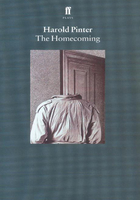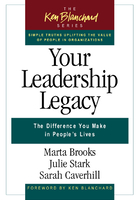The Color of Moral
What Makes Right Acts Right?
What Makes Good Things Good and Bad Things Bad?
Do you cheat on your taxes? On your spouse? Do you steal money from your friends? Do you regularly make solemn promises to your kids that you have no intention of keeping?
Probably not. But why not? Is it simply that you're afraid of getting caught? Or is there something more? Don't you also have a feeling that cheating, stealing, and lying are wrong?
Probably so. But why? What is it about cheating, stealing, and lying that makes them wrong? For that matter, what is it about fairness, generosity, and honesty that makes them right? How come there's such a difference between the things we feel we should do and the things we feel we shouldn't?
It's a question I've wondered about for a long, long time:
What, in other words, makes the good things good and the bad things bad?
It's 1970, and I'm in seventh grade at Fulton Elementary School in Pittsburgh, Pennsylvania. Monday afternoons, our class rides the bus across town to manual-arts magnet classes. It is a noble experiment on the part of our local educational administrators for a couple of reasons. First, because it brings together kids from our relatively well-to-do neighborhood with students from neighborhoods that aren't so economically advantaged. And second, because it is the first time that all students, boys and girls alike, take the full range of manual-arts offerings. This means that on any given Monday, I'm just as likely to be burning bran muffins in home economics class as my friend, Debbie Fiedler, is to be bending nails in wood shop.
For our part, though, it's a drag on any number of counts. First, because it means that the bigger and tougher kids from the other schools get to spend their Monday afternoons torturing us from the moment we pick them up after lunch to the second our shared bus drops them off after school. And second, because the bus ride adds at least an hour to our school day, which means that not only is the usual agony worse than normal, it's longer, too.
So, often we conspire to alleviate the pain by treating ourselves to something special when we get back home: maybe a movie, or a Pirates game if it's baseball season, or just a session of pinball at the local deli—anything to adjust our prepubescent attitudes in light of the traumatic experience we've just been through. (The following year, we realize we can achieve the same effect by skipping manual-arts class altogether, but at this point, in seventh grade, we aren't so creative.)
On this particular Monday, my three best friends—Paul, Michael, Willie—and I have arranged to go to see a Charlie Chaplin revival that is playing a couple miles from where we all live. Michael's mom has agreed to leave work early and drive us, but only on the condition that we promise to show up promptly. The movie is at 4:15, so, since the bus usually drops us off at 4:00, we are cutting it pretty close. But with the optimism about schedules that tends to afflict preteenagers, we're confident we can make it.
The day is memorable in part because I have been making a shirt in sewing class and, since I don't believe that the pattern we are working from could possibly be right, have ended up cutting off the material for both sleeves and the collar yoke, effectively turning the shirt into a fringed vest, complete with fraying armholes and raveling bottom seams. Still, I'm excited to show off my creation and proudly sport it over my polo shirt on the bus ride home. This causes William Goosby, one of my usual Monday afternoon tormentors, to amp up his customary level of tormenting, augmenting the standard body-pokes with loud aspersions about my sexual orientation and, even worse, comparisons between my outfit and one he's seen David Cassidy wearing on “The Partridge Family Show.” Understandably, I am even more eager than usual to get home and off the bus as quickly as possible.
So, when we're pulling up to school and the bus driver eases slowly over to the curb, I can hardly stand it. When he takes his time turning off the bus, I'm about to burst. And when he fails to immediately open the door to let us exit, I can't take it any more.
I suggest to my friends that we leave by the windows. Willie is hesitant, but I argue that if we move quickly, the bus driver won't even know we've left, so what difference does it make? We'll be happier and no one else will suffer at all. Michael is skeptical, so I tell him to think about his mom; we've promised her we'll be on time and we're already late. Don't we owe her doing whatever it takes to get there as fast as possible? Paul is unsure but I claim that since we aren't the kind of kids who do bad things and get in trouble, what is the problem? As long as it's us, and not say, William Goosby climbing out, how can it be wrong?
As we're lowering the windows, Amy Schubert tells us to stop; we're supposed to leave by the front door; that's what the rules say. I say she ought to trust her feelings more; it doesn't feel wrong, so how could there possibly be anything wrong with what we're doing?
By this time, my three friends are already sliding down the outside of the bus and sprinting away. I give up trying to persuade Amy to see things my way and squeeze my head through the metal-framed panes.
As I begin lowering myself to the ground outside, I feel a strong pair of hands grasp me about the waist and pull me violently to the ground.
“What the hell do you think you're doing!”
The bus driver digs his fingers into my shoulders and immobilizes me against the bus. “Are you trying to get me fired? Or just break your neck? We're going to see the principal about this!”
As he marches me forcibly to the office of our principal, Dr. Marshall, I sputter something about the unfairness of being singled out for punishment. “If a hundred people murdered somebody, would it be fair to punish just one of them?”
The bus driver tells me to shut up and not to worry about anyone else but myself. He knows there are plenty of others and they'll get what's coming to them, too.
In Dr. Marshall's office, she gives me the ultimatum: either I tell them who the other kids who jumped off the bus are, or our entire class will be punished.
“How is that fair?” I want to know. “And besides, what did we do that was so wrong, anyhow? Nobody got hurt and if the bus driver hadn't made such a big deal out of it, the whole thing would be done with by now.”
Dr. Marshall says that she isn't here to debate with me. We have broken the rules and are to be punished, end of story.
But what rules? Where did it say you aren't allowed to leave a school bus through the windows? Nobody ever told us. The rules aren't written down.
Dr. Marshall's patience with me is already pushed beyond its breaking point. “It doesn't matter that no one ever told you. Nor that the rules are not in writing. Nor what you think about any of this. The simple fact is—and all that matters is—what you and your friends did was wrong. And that's why you're going to be punished. Because it was wrong.”
“But,” I cry, tears springing to my eyes as the reality of how much trouble I am in finally begins sinking in, “How do you know it's wrong? How do you know?”
Ultimately, Dr. Marshall was right: it didn't matter what I thought, or even what I did. Despite the fact that I didn't confess their involvement, Paul, Michael, and Willie got in trouble anyway. As close as we were, it was obvious to our teachers who else had to be involved if I was. But of course, this wasn't obvious to my friends, who were certain that I had squealed and shunned me for weeks—until I was the first one among us to manage to buy some beer, but that's another story. Plus, our whole class got in trouble merely by association with us and were all mad at me for weeks, too. But in spite of all that, I was still never convinced we did anything wrong.
More important, I still never got an answer to the question I asked Dr. Marshall: “How do you know it's wrong? How do you know?”
How do you know what's wrong?
The history of philosophy is littered with attempts to answer that question. In a dialogue called the Euthyphro, the ancient Greek philosopher Plato explored the idea that something is right or wrong depending on whether it is loved by the gods or not. This gave rise to the famous question, “Is it right because it's loved by the gods, or is it loved by the gods because it's right?” Plato leaves the answer open to interpretation, and in the absence of a definitive explanation, we are left still wondering.
Aristotle, Plato's pupil, argued that right actions are those done by the right people in the right way at the right time for the right reasons. While this does a pretty good job of indicating which actions are right and which aren't, it still doesn't tell us why they are.
In the 18th century, Immanuel Kant, one of Western philosophy's most important ethical theorists, claimed that rightness and wrongness are inextricably bound up in duty. By a process of reasoning alone, said Kant, we can determine what our moral duties are. Objections to this view typically revolve around questions of how something that's connected only to our thoughts and not to our emotions can possibly give us any motivation to act. The conclusions of reason are not desires, so even if we conclude that something is the right thing to do, how will this impel us to do it?
The 19th century saw the development of a theory that most of us probably take for granted as a way of choosing the right thing to do: utilitarianism. John Stuart Mill, expounding upon the views of Jeremy Bentham, proposed that actions are right insofar as they tend to promote overall happiness. As common-sensical as this sounds, it nevertheless leads to difficulties in calculating happiness, as well as to problematic situations that seem to permit individual suffering in the name of societal well-being.
Nowadays, philosophers, theologians, educators, businesspeople, and politicians continue this long-running project to provide a criterion for moral rightness. Any number of proposals are floated. What's right are the principles that rational beings would choose to govern themselves by, assuming they had no knowledge of who they were in the society in which they live. What's right is what God commands us to do. What's right is what feels right. What's right is what maximizes quality and profit without compromising our goal of being a responsible corporate citizen. What's right is anything that's not specifically prohibited by law.
The point of all this is not to give an abbreviated (and overly simplified) history of philosophy; rather, it is to illustrate how varied are the perspectives we bring to moral reasoning. And it's to suggest that often our moral dilemmas are not so much a disagreement about what is right or wrong but about what makes something right or wrong.
Consider the story that opened this chapter. Note the variety of perspectives on the rightness of what we were planning to do. Willie was moved by a broadly utilitarian appeal. Michael responded to what might be construed as a somewhat Kantian justification. Paul is sympathetic to a perspective that was vaguely Aristotelian. Looking back, I can take my retort to Amy as reflective of a position like that of the philosopher David Hume, which takes moral properties to be expressions of our sentiments. The bus driver was coming from a theory that based right and wrong in a sort of social contract, while Dr. Marshall seemed to be arguing from a moral theory based on authoritarian grounds.
None of this is to suggest that there isn't a way to settle the issue of whether what we did was right or wrong—in fact, I think you'd be hard-pressed to make a case that allowing 13-year-old boys to leap from the windows of school buses is in any way acceptable—rather, it is meant to illustrate that, often, what we take to be a disagreement over the rightness or wrongness of a given action isn't that at all. Instead, it's a difference in the criteria on which we're basing our judgment.
It's similar to one person saying a restaurant is lousy because the portions are small while another says it's excellent because the service is fast. They might argue about the quality of the place for hours, never realizing that at the core of their argument is a misunderstanding about what they're even arguing about. And never realizing that, as a matter of fact, they're both in serious agreement about the lousy small portions and the excellent fast service.
Of course, there are big differences between assessments of restaurant quality and judgments of morality. Not the least is that the former are merely matters of taste, while the latter are matters that go beyond mere preference. While there's no “best” favorite dining establishment, few of us want to maintain that there are no better and worse moral values to hold. And even the die-hard relativist is apt to argue for the values (tolerance, for one) that he or she holds most dear—which only goes to show that as far as our experience is concerned, we do treat moral values as something about which people can be mistaken and of which their judgments—through education and persuasion—can be improved.
Relatively Speaking, It's Not All Relative
All of us, at one time or another—and many of us, at many times or another—have made what we obviously recognize as the wrong move. You know, the wrong move: deciding to start tearing up the old linoleum on your kitchen floor at 5:30 in the afternoon on a Sunday. Or figuring you can save a few dollars by cutting your own hair the night before that big presentation for your boss. Or drinking a few beers and coming up with the idea of playing catch with bricks. The wrong move. A recipe for disaster. A supposedly fun thing you'll never do again.
In matters practical, financial, or work-related, we tend to easily identify one choice as better than another. The decision to take that “short-cut” on the way to the airport was a bad one. The choice not to invest in your brother-in-law's multilevel marketing scheme was good.
And yet, oddly, we tend not to be so forthright when it comes to matters of greater import: matters of moral concern. While we have no problem admitting we made even a relatively major bad financial decision—“I did a bad thing by investing heavily in last month's hot new Internet-based communications protocol,” for instance—we're reticent to cop to even somewhat minor moral mistakes: “No, it wasn't wrong to insult the hotel clerk for losing my reservation; handling irate customers is part of her job and she just has to deal with it.”
This isn't to say that we don't pass moral judgments on ourselves and others; five minutes listening to talk radio demonstrates beyond a shadow of a doubt that we do. Rather, the point is we're far less convinced about the reality of our moral judgments than we are of our other judgments—and given the important role that the former play in our lives, this seems strange.
Many of us, at one time or another, have been sympathetic to a moral position commonly known as “ethical relativism.” Essentially, this amounts to the belief that moral judgments reflect nothing more than the opinion of the person making them. To say, for example, “slavery is wrong” means only that “I think slavery is wrong.” And just because I think it is doesn't really mean it is. You might say, “slavery is just fine,” and that's an equally valid position. Even though our views differ, they're both true; yours is just true for you, mine is true for me.
When we're asked to justify this position, we typically respond by saying something like, “Well, who are we to judge someone else? What gives us the right to say that they are doing something wrong when we're not in their shoes?”
But why do we think we don't have this right? After all, we'd have few qualms about telling someone he was wrong if he added up 2 plus 2 and got 5. Why should matters of morality be so different? Typically, we respond by saying, “Well, I just don't think I ought to impose my beliefs on someone else. I wouldn't want them imposing theirs on me.” This, I think, reveals the heart of the matter:
It's not passing judgment we're concerned about, it's tolerance.
In our reticence to say that someone else is mistaken in their moral beliefs, we are quite rightly advocating tolerance of others' views. When we say “Just because I think slavery is wrong doesn't mean it is,” we're implying that, in spite of the wrongness of slavery, it would be equally wrong—or worse, even—to forcibly require another culture to end its slave-holding practices. And while there might be room for debate about this (depending on how abhorrent those practices were), it's easy enough to see that this is a different judgment than the one about slavery.
When we recognize this distinction, many of us come to see that we are not nearly as relativistic in our moral beliefs as we thought we were. We recognize that having respect for other people's autonomy does not require us to admit that “anything goes.” We conclude that being tolerant doesn't mean we have to be moral relativists. We can, in other words, judge someone's moral position to be wrong while simultaneously judging that it would be wrong to punch that person in nose for his beliefs.
With this realization, we recognize an inherent problem of relativism: it contradicts itself. Suppose, as relativists, we hold that any moral view is as good as any other. Now suppose that someone else holds a view that says only his moral view is right; everyone else's is wrong. As relativists, we can't simultaneously accept this view along with our own. We are committed to the claim that everyone's view is as good any everyone else's. Even relativists, in other words, are not relativistic about one thing—the value of relativism.
But Isn't Everyone a Moral Expert?
Suppose we agree that right and wrong are not entirely relative. Wouldn't it still be the case that whatever people think is right for them really is right for them? Isn't everyone a moral expert when it comes to his or her own moral questions?
Good question!
We all may think we are—at least occasionally—but we can't be. In this way, it's a bit like matters of style. The vast majority of us think we look pretty good, but, on reflection, those in sweatpants and Birkenstocks have to yield the floor to couples in custom-cut designer outfits and handmade Italian shoes. Of course, someone might object, “Yes, but sweats and Birkies are my style and I feel comfortable in them!” Notice, however, that no one is disputing that.
The claim is simply that some people have a better sense of style than others. It should be no more contentious than claiming that some people are better at math than others. Or that we can recognize people with artistic talent versus the rest of us who can barely sign our names legibly. But if you still disagree, just go to Milan or Florence. See if you don't think the locals in their tasteful finery don't look better than tourists in plaid Bermuda shorts and black knee socks.
When it comes to ethical matters, this same story holds true. No doubt you've come across someone in your life who has a particularly well-developed moral sense. Someone who just seems to know the right thing to do. This is the person of practical wisdom, the person who could be picked up and set down in virtually any setting and still be able to make the right choices.
My dad was this sort of person. He had an uncanny knack for assessing situations and making the right move. This doesn't mean, however, that he never made mistakes; as the story in the Introduction illustrated, he sometimes failed to choose the right thing to do. Nor does it imply that he was perfectly benign and mellow. On the contrary. As Aristotle said, a necessary quality of virtuous people is that they be temperate in their emotions; that is, that they be emotional for the right reasons at the right time. Righteous anger or heartfelt sorrow certainly fit into this picture.
I'll never forget one time my father displayed the former, quite strongly—and quite rightly.
I am eight years old and want only one thing: to be Zorro, the famous swashbuckling swordsman. Make that two things: I also want a sword, so I can swashbucklingly carve “Z's” into the chests of my slain enemies as I ride away into the sunset. I beg and plead for my dad to buy me a rapier like Zorro's, but with an interest in my safety (not to mention my older sister's and the cat's) he refuses. Finally, though, after weeks of my pestering, he reluctantly agrees to make me a sword. But it would be a broadsword, made from wood, and consequently, much less likely to put out someone's eye.
My father, not a particularly handy man, struggles over his basement workbench with a hacksaw to cut my sword from a square of three-quarter inch thick plywood. Then, he carefully rounds all the edges of the cutout, the better to keep me from getting splinters and from passing them on to my sister and the cat. Having completed this time-consuming step (his only file is the three-inch hasp on his army knife), he presents the sword to me with the admonition not to stab myself with it.
I, of course, as self-centered as only an eight-year old can be, am dissatisfied with his effort and insist the sword have a black leather grip just like Zorro's. My dad, with a sigh, packs me into the car for a trip to the hardware store where we purchase a roll of black electrical tape to make the sword's handle. But even after this is completed, I want more. Zorro's sword is monogrammed; mine has to be too. My dad roots around in the attic to find his old wood-burning kit and supervises me as I burn my initials into the sword's blade. Confident that now the project is complete, he puts the kit away and prepares to head to his study for a well-deserved respite from my demands. But I stomp my foot and insist that the sword has to be shiny like Zorro's. My dad tries to convince me that the natural wood grain is more authentic but I refuse to budge. Obviously at the end of his rope, my dad locates an old can of gold paint and says that if I want my sword to be shiny, I can paint it myself.
“But,” he adds in no uncertain terms, “only if you promise not to paint anything but the sword. I don't want to see any of this gold paint on the walls or the stairs or the floor.”
I assure him that my brush will only touch the sword. No sooner does he leave, though, than I take his warning to be a dare and begin slapping gold paint all over the basement walls. I proudly paint “Dave is great! Signed, Zorro.” in huge block letters along the basement steps.
Dad knows something is up when I come upstairs covered in paint. He disappears for a moment and then returns, quite furious, righteously angry. “You deliberately broke a promise you made. This is inexcusable.”
He scoops me up, carries me to my room, and for one of the few times in my childhood gives me a spanking. The pain on my bottom doesn't last long; the memory of my broken promise never fades.
No doubt my father could have done something else less dramatic, but it wouldn't have been so memorable—or so effective. His righteous anger, coupled with his judicious use of corporal punishment, was entirely warranted. In fact, I consider what he did to be a gesture of respect. He didn't patronize me. I got the punishment I deserved and more importantly, learned the message that it intended to send. Never again did I—well, so stupidly and unthinkingly, at least—break a promise to him. As I look back, I remain convinced that he did the right thing.
So What Do Moral Experts Have That Others Don't?
How did my dad so consistently know the right thing to do? For that matter, how does anyone with a talent for making wise moral choices do so? When we see people with practical wisdom in action, it's not obvious how they do it. They make it look easy, effortless, natural.
I watched a schoolteacher friend of mine calmly defuse the anger of the father of one of his fifth-grade students. The dad was upset because his son had been prohibited from participating in the school's Christmas pageant due to inappropriate behavior on the playground. The father thought that the punishment was excessive and that, moreover, it wasn't the business of the school to discipline his child; he'd take care of that at home. When the man—who was picking up his son after school—first began his tirade, I was afraid my friend was going to have to call security. But within just a few minutes, he had convinced him that his son's punishment was warranted and that, indeed, it was best that the school administer it. He did so in part by enlisting the student's help. He had the boy explain to his dad what he'd done wrong and why this justified his exclusion from the pageant. Hearing his son's explanation made things clear for the man in a way that no amount of explaining from his teacher could have done.
I marveled at my friend's ability to size up the situation and make the right move so smoothly and gracefully. How did he know that it would have been a mistake to engage the father in debate? How did he know that the right thing to do was to enlist the son's assistance? It seemed to me as if he could literally see something I couldn't see. He had an ability—as do other people with practical wisdom—to perceive the right thing to do in a way that usually escapes most of us.
But talk of perceiving right and wrong may strike us as rather strange. Moral properties aren't like trees or cars; they're not something we can reach out and touch or see or hear. It's not as if right and wrong, good and bad, just and unjust are palpable features of existence, just waiting for us to stumble across. Ongoing disagreement over the morality of everything from abortion to zoos demonstrates that moral properties, whatever they are, don't make themselves readily apparent.
This is true. But difficulty in seeing something doesn't mean it doesn't exist. If it did, then we'd have to deny the existence of subatomic particles or, for that matter, the broad appeal of tractor pulls. Moral properties can be hard to see; they can be difficult to settle on; they can reflect something about the perspective of the person perceiving them. But this doesn't necessarily mean they aren't real.
We just have to understand them in a particular way—a way that will be familiar to anyone who has ever looked through a prism or stood beneath a rainbow.
Relating to Value
When we gaze upon a beautiful sunset and perceive its brilliant reds, oranges, yellows, and purples, our perception is a product of two interrelated factors: first, something about the external physical world—the physics of light, atmosphere, diffusion, and so on—and second, something about our internal mental processes—our eyesight, visual processing systems, sense of perspective, and so on.
Because our experience of the sunset's colors are dependent on the interplay of both these factors, we can say that colors are relational properties. That is, in order for them to be perceived, there has to be a relation occurring—the relation between the external physical world and our internal mental process. Obviously, lots of properties are relational properties: sounds, sensations like heat and cold, flavors, and smells.
Understanding moral properties as relational properties doesn't commit us to the objectionable position that any moral view is as good as any other. Just because a property is relational doesn't mean that anything goes.
Consider the analogy with color. Take, for instance, the color of a freshly hewn lawn on a bright summer's day. It's green. That's a matter of fact, even though the fact is dependent upon the interplay of light and the eyesight of the viewer. If someone were to say to us, “Oh. What a lovely red lawn!” we'd think there was something amiss. Either she had a very strange view of the grass, or there was something out of order with her viewing system. Having determined which of these were the case, we could then assist her to see the right color by either changing her view externally or by changing her viewpoint internally. We wouldn't have to simply say, “Oh. Red. That's very interesting. For you it's red, for me it's green. I guess we're both right.” We can, quite clearly, recognize that mistakes can be made, and often these mistakes are correctable.
The same goes for moral properties when we understand them as relational properties—at least, the following example makes me think so.
My first “real job” is as a ticket seller for a major legitimate theater in San Francisco. I process season ticket subscription orders for shows by touring companies of Broadway's best, including “Evita,” “Chorus Line,” “Annie,” and a revival of “Guys and Dolls.” After a couple of seasons of administrative work, I am given the additional opportunity to manage sales of souvenir programs. Before each performance and during intermission, I set up a booth in the lobby and sell glossy keepsakes packed with photos of the casts and sets. It is all on commission, but the money is pretty good. Programs go for $2.50 and I buy them for $2.00. It isn't hard to sell 100 programs a night, which means 50 bucks for a couple hours work—not bad, especially for a 22-year old kid in 1979.
One night, I don't have any quarters for change, so I decide to sell the programs for $3.00. To my surprise, it doesn't seem to make any difference in how fast they move. I decide, after that, to keep the higher price. Why not? I am still paying my distributor his price, nobody is forcing customers to buy, and I am making twice as much. I can't see anything wrong with the arrangement.
It takes about three weeks for me to get caught. One night, the theater's house manager watches me in action. I think she is more surprised that I don't try to hide what I am doing than she is at the inflated price I am charging.
The next day, I am summarily fired. “For what?” I want to know. As far as I can see, I haven't done anything wrong. “Everyone's getting paid, aren't they?”
My boss, in a final gesture of compassion for his terminated employee, helps me see what I've been missing. “In the first place, it's not just the money you owe your distributor. You have an agreement with them that you are not fulfilling. In the second place, as an employee of our theaters, you have a responsibility to us that you are breaking when you fail to offer our customers the best value on their money. Third, you're cheating our customers. And fourth, I warned you not to be greedy when you took this job.”
I don't come to perceive the wrongness of my behavior right away. It isn't until a few years later, when I have my own consulting business for which I occasionally hire free-lance people that I really come to appreciate the unacceptability of what I have done. Business relationships are based on trust and when that trust is undermined, the entire system is threatened. The interesting thing is, having improved my perspective on the situation, my response to my behavior becomes more sophisticated as well. Whereas originally I couldn't even tell what all the fuss was about, I now come to have the sort of visceral response one has to morally objectionable behaviors: I feel bad about what I'd done.
So what happened? I believe that a better perspective on the issue allowed me to perceive the wrongness of the act—a perception that, given my limited perspective beforehand, I'd been unable to have. The wrongness was there to be seen all along but only for someone in the proper relation to it. We won't see the beauty, for instance, in a painting by Hans Hoffman unless we take in the whole picture. But it's still there. We won't hear the harmony in a symphony by Mahler unless we hear all the instruments. But it's still there. Similarly, we won't perceive the morality of life's more complex situations unless we stand in the right relationship to what we are perceiving. And that means taking into account as broad a perspective as possible and allowing our sensibilities to operate with as much information as is available.
Only then can we perceive all the colors of the moral spectrum. And only then can we really choose the right thing to do.
The Promise of Perception
Professional philosophers can—and will!—engage in endless debates over the appropriateness of the analogy between moral properties and relational properties like color. Those of us less interested in establishing academic reputations than in improving our ability to perceive and choose the right thing to do, however, can still profit from the analogy—even if it turns out that the folks in the ivory tower have questions left unanswered.
From a practical standpoint, there are a number of benefits that make a strong case for the analogy between moral properties as relational properties. These include the following:
First, the analogy enables us to make a good case for the reasonable objectivity of moral properties. Our sympathy for diverse viewpoints doesn't back us into the corner of an “anything goes” relativism. On the other hand, since right and wrong are a product of a relationship between the judgment and the judged, there is room for a healthy appreciation of individual differences. We're not, in other words, committed to an intolerant moral absolutism.
Second, the analogy allows us to recognize that moral progress is possible. We can see how mistaken judgments are made and that such judgments can be improved upon. Comparisons can be made, for example, to the world before the invention of the microscope. At that time, people had no tools for seeing microscopic creatures and, consequently, made inaccurate judgments regarding the causes of disease. Following Leeuwenhoek's invention, however, scientists were able to perceive entities they'd previously been unable to and, as a result, were able to make improved judgments—many of which we still accept today. Similarly, in the moral realm, when people don't have the tools needed for perceiving the rightness or wrongness of something, they make judgments that are less accurate than they would be if they had such tools. We can see then, for instance, how the limited perspective of some people in 19th-century America led them to conclude that racism was acceptable and how our wider perspective these days enables us to recognize how horribly mistaken that earlier judgment was.
Third, the analogy gives us a framework for improving our own—and others'—ability to perceive and choose the right thing to do. If moral properties are something we perceive, then our perceptions can be improved. Compare it to the sensibilities of great painters or great chefs who, through practice, have elevated their abilities to make finer distinctions of color and taste. As “moral artists” we can teach ourselves and each other to make finer moral judgments, too.
Finally, the analogy encourages us to keep broadening our perspective on the moral issues we face in our personal and professional lives. The promise of improving our judgments in the face of new perspectives compels us to continually reevaluate where we stand on the issues. This increases our potential for making better choices and reduces the likelihood that we will become locked in to a view that no longer reflects our current values and vision for the people we hope to be.
So How Does It Work, Already?
I've suggested that an understanding of what I'm calling the moral spectrum model has real-world benefits, not only in the realm of the moral judgments we make but for other aspects of our lives as well.
So, how does it work? What's involved in perceiving the right thing to do? How are we to use the so-called moral spectrum model to improve our ability to make the best choices possible? Suppose moral properties are like colors; how does the moral spectrum model enable us to see them more clearly?
These questions and more will be addressed in Chapter 2, “The Moral Spectrum.” So, if you're interested in the answers, then you may find that the right thing to do is keep reading.














